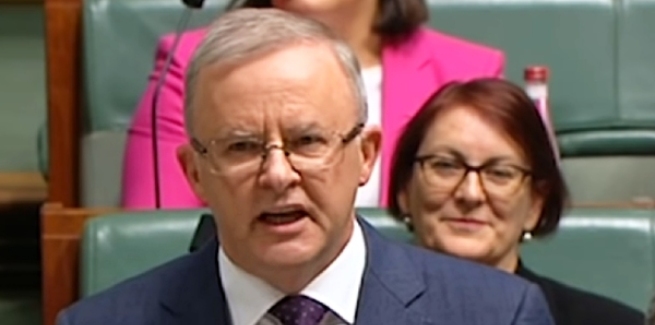After Australians across the nation took to the polls to elect members of the 47th Parliament of Australia on Saturday (21 May), it has now been declared that the Australian Labor Party (ALP) has won the federal election.
With the country now facing a rising interest rate environment amid record-high property prices, a key focus of this campaign has been on housing affordability (largely centred on home ownership, rather than renting).
The Australian Labor Party has committed to bring in a suite of policies designed to improve housing affordability and ownership.
Here’s what we know we can expect from the new government in terms of housing:
- A new Help to Buy scheme, involving an equity contribution from the Federal Government of up to a maximum of 40 per cent of the purchase price of a new home (and up to a maximum of 30 per cent of the purchase price for an existing home) for 10,000 Australians each financial year;
- A Regional First Home Buyer Support Scheme, which will provide a government guarantee of up to 15 per cent for eligible first home buyers, so that locals with a 5 per cent deposit can avoid paying mortgage insurance
- A $10 billion Housing Australia Future Fund, which will build 30,000 new social and affordable housing properties in its first five years
- Commit $100 million to start work on urgent housing and essential infrastructure on Northern Territory homeland and negotiate a new remote housing agreement with the Northern Territory that includes homelands, when the current agreement expires in mid-2023.
- Provide $200 million from the Housing Australia Future Fund for repair, maintenance and improvement of remote housing in Western Australia, South Australia, Queensland and the Northern Territory.
- Establish a National Housing Supply and Affordability Council that will set targets for land supply (in consultation with State and Territory Governments) and advise on ways to improve land use planning and supply for housing; as well as collect “nationally consistent data” on housing supply, demand and affordability and report on rental affordability, social housing, and homelessness and advise on ways to boost the construction of social and affordable housing.
What matters most to the mortgage industry?
Unlike in the 2019 election (when the mortgage broking industry was strongly favouring the Liberal-National Coalition given its more favourable stance on broker remuneration), both the Morrison government and the Labor opposition had pedalled back from any review of broker remuneration this year, closing the gap between the two parties.
Moreover, the Labor party recently suggested it would be open to discussing the format of clawbacks (which the Coalition has not previously agreed to).
However, the second edition of the Industry Insight Report found that 52 per cent of industry participants said they would be voting for the Liberal-National Coalition, with 61 per cent of the mortgage lending industry stating that they believed Prime Minister Scott Morrison was a better Prime Minister than Labor Leader Anthony Albanese.
According to the report, the top priorities for this sector were:
- The economy (73 per cent);
- Small-business interests (56 per cent);
- Housing affordability (52 per cent); and
- Taxation (51 per cent).
When looking across all seven industries surveyed (mortgage lending, real estate services, financial advice and wealth management, defence and national security, accounting services, aviation, and legal services), the Liberal-National Coalition was coming out top in primary voting responses.
However, less than half of all respondents flagged this as their primary vote (49 per cent), with just over a quarter leaning towards Labor (26 per cent) and the remaining 24 per cent either voting for “others” or undecided.
Only the legal services sector had voted a preference for a Labor Party government led by Mr Albanese, with 43 per cent of lawyers suggesting their primary vote would lean that way (compared to 31 per cent of this profession leaning to a primary vote of Liberal-National Coalition) and 60 per cent believing Mr Albanese would make a better Prime Minister than Mr Morrison.
As a whole, the top three most important voting considerations across all industries were: the economy (69 per cent), taxation (49 per cent), and defence and security (47 per cent).
[Related: Mortgage lending industry prefers Scott Morrison as PM]
